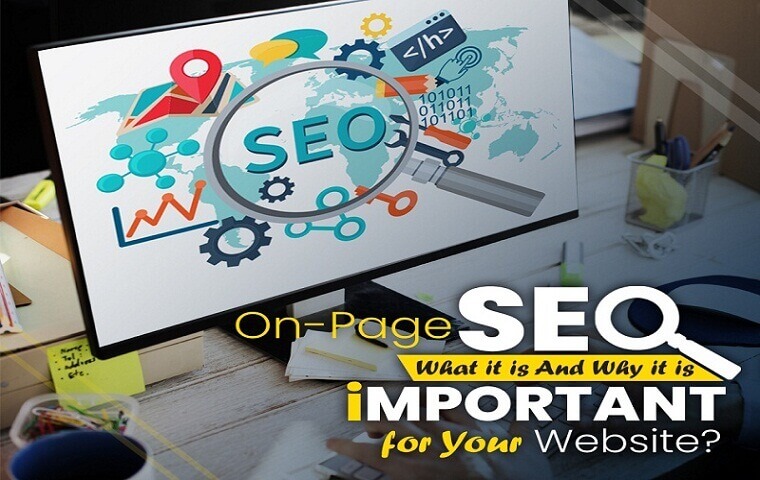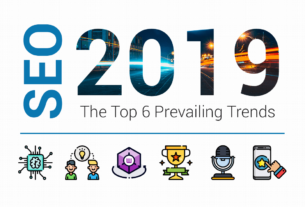Building a website is not an easy feat, especially if you’re building it from scratch. You have to think and list down many factors that contribute to its success. The general content and its flow within each page, overall aesthetic appeal, website security, and many more. It can be overwhelming so it’s best to take things one at a time.
We’ll be focusing on the content and how efficiently and effectively we can bring up the traction of your website through search engine optimization (SEO). Simply put, it’s the process of making sure that your website shows up on the database of search engines so that it’s going to be on the top rankings of search engine results.
What is SEO?
Search engine optimization (SEO) is the process of gaining traffic to your website from various ways such as organic, editorial, free, or natural search results in search engines.
When a user searches something up on the internet, search engines scour through their database to provide results of what they are looking for. The way search engines expand their database is by “crawling” through the pages of websites and “indexing” those websites. This process of indexing is done by reading the websites’ HTML codes and certain keywords in order to understand the gist of the context and meaning of websites.
SEO then is also the process of making sure that search engines easily understand the content of your website by providing the necessary keywords and information it might be looking for.
What is On-Page SEO?
Getting into the more technical side of things, on-page SEO is when you optimize individual web pages so that they would earn more traction and thus rank higher in search engine results. This can be done by creating unique and quality content with good keyword selection. You could also provide informative titles, headers, sub-headers, as well as well-thought-out URLs within your website.
On-page SEO focuses on how well your website can be easily understood and navigated by users and search engines.
What is Off-Page SEO?
Off-page SEO on the other hand deals with link building and increasing link popularity. In short, it’s to make sure that your website is well promoted by users and search engines.
This can be done by social media management, creating and participating in forums, submitting blogs and articles, and creating fun and engaging web design.
Building your website’s popularity can be as easy as you can make it be if you put in the effort in making sure your website is as visible as you can. Try visiting the search engine results page (SERPS) as often as you can to keep up with the latest trends of which keywords are popular, and who your competition is.
How to Utilize On-Page SEO?
Now that you have the gist of what SEO is and the difference between on-page SEO and off-page SEO, we’ll get right down on how you can utilize on-page SEO effectively.
1. Use relevant keywords
Make use of SEO keyword tools such as Google’s Keyword Planner or SEMrush Keyword Magic tool that will help you look up and check the popularity of certain keywords. This will help you be more aware of what certain keywords are usually searched for and how often users search it up on search engines.
Mastering this technique will really help in the long run because not only do you get to practice writing your content. You will also be able to write in such a way that search engines can easily “crawl” and “index” through your pages or website.
2. Create Unique Content
Search engines don’t favor “duplicate content.” When you have a website with multiple pages that have similar content, it’s difficult to make them 100% unique. However, such is the case with search engines because they filter out duplicate content. And thus would then be referred to as irrelevant content.
You want to produce quality content that is “better” than what other pages or websites could offer. This will bump up your rankings and gain more traction on your website because you get to build a credible reputation among your users as well as search engines as well.
3. Use Alt Text
Images, videos, audio, and other media content are not as easily read by search engines because they don’t have any text to read. Yes, it’s advisable to spice up your website and content with media files but you have to take into account in making it easy for the search engines to understand the content and meaning of your website.
You can do this by providing alt text in your media files. You just provide a brief description of what your image or video is all about and the search engines would then understand it easily. For example, if you have an image of an apple, your alt text can be “A red apple”.
Doing this not only adds an aesthetic appeal to your website, but search engines also get to enjoy indexing and understand your content.
Why is On-Page SEO Important?
After gaining a bit more understanding on what on-page SEO and off-page SEO are and their purpose, it shows just how important SEO strategy is for B2B companies in gaining traction for your website.
Not only will it hone your skill in creating unique, quality content that is informative and engaging for your users. But it will also hone your skill in making sure that it will be understandable and indexable by search engines. Make use of the tools that are available in making sure that you are up to date with the latest trends of the most searched keywords and phrases so that your rankings will move up exponentially.
This technique is efficient and effective for marketing and publicizing your website in a cost-free manner. It’s an inexpensive way of building credibility among your users and search engines. Of course, off-page SEO may cost more due to the nature of how it promotes your website. However, on-page SEO will be the one to make up most of the work in building your website more traction.



